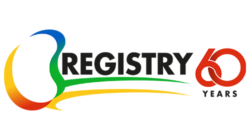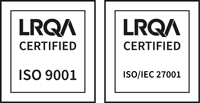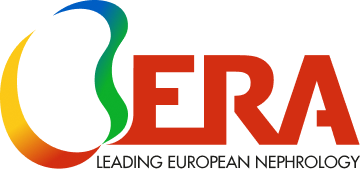Monoclonal gammopathy of unknown significance in kidney transplanted patients
ERA Registry
The ERA Registry collects data on kidney replacement therapy via the national and regional renal registries in Europe and in countries bordering Europe or the Mediterranean Sea

What we do
The ERA Registry is a European Registry collecting data on kidney replacement therapy via the national and regional renal registries in Europe and in countries bordering Europe or the Mediterranean Sea. It analyses these data and distributes the resulting information through registry reports presented at the yearly ERA Congresses, publications in nephrology journals and through this website.
The ERA Registry is funded by the European Renal Association (ERA). Since June 2000, the Registry office is housed in the Department of Medical Informatics in the Amsterdam University Medical Centers (location AMC) in Amsterdam, The Netherlands. The Registry is part of an ISO 9001:2015 certified quality management system, and an ISO 27001:2013 certified information security management system. These certificates were provided by Lloyd’s Register Quality Assurance.

Contacts & Resources
Office
Department of Medical Informatics
Amsterdam University Medical Centers, location AMC
Meibergdreef 15
Amsterdam, The Netherlands
Postal address
P.O. Box 22700
Room J1B-113
1100 DE Amsterdam, The Netherlands
Regulations
Objectives
The aim of the ERA Registry is to complement and build on the analyses which the national and regional kidney replacement therapy (KRT) registries themselves can carry out. In particular, the ERA Registry will compare disease patterns and their treatment in the various member countries, study treatment outcomes, carry out analyses where patient numbers in individual national and regional KRT registries are small and build up a demographic picture of KRT within the member countries. In addition, the ERA Registry will perform focused studies using data from a segment of the catchment population with the aim of answering specific questions.
The information resulting from the analyses carried out will be communicated to the (scientific) community by means of presentations at the ERA Annual Congresses and other conferences and by publications in scientific journals. Also the ERA Registry will publish an Annual Report.
Another aim is to improve the coding systems and definitions used by KRT registries to enhance (world-wide) collaboration. In pursuit of this aim, the ERA Registry will work jointly with other international registries.
The ERA Registry will assist the countries affiliated to the ERA which do not yet have national KRT registries to develop their own registry with the eventual aim of incorporating the data from these more recently established registries in the ERA Registry database.
KRT data collection
The ERA Registry collects data on KRT at an annual basis via the national and regional renal registries in Europe. These data include the patient’s date of birth, sex, cause of renal failure, comorbidity status, date of start of first KRT, history of KRT with dates and changes of modality, treatment centre, date and cause of death and information concerning transfer from or to other renal registries. Data are imported into a MS-SQL-server database using a locally developed import utility, which uniforms the data, and translates any non-standard codes, guaranteeing a uniform view on the data for each country. Feedback is provided to the national and regional KRT registries concerning inconsistencies, or other problems in the data.
In addition, from registries that have additional data items available, the ERA Registry also collects data on patient characteristics (physical examination and laboratory measurements), therapy characteristics (general and haemodialysis and peritoneal dialysis specific), and intermediate outcomes.
Disclaimer
ERA, its Registry Committee, AMC and its department of Medical Informatics disclaim any express or implied warranty of fitness for the use of ERA Registry products and shall not be liable for any direct, indirect or consequential loss; personal injury; special or punitive damages; loss of profits, loss of savings and loss of revenue; loss of business, loss of reputation and loss of goodwill; and loss of data arising from the use of ERA Registry products.
